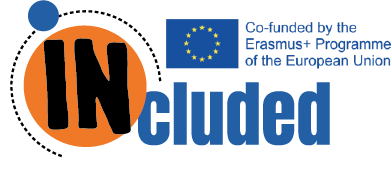International research on the subject has pointed out that sex education is a topic that still plays a marginal role in the educational program of students in many countries of the European Union. Even more marginal is the teaching of sex education aimed at groups at risk of marginalization, such as individuals with physical and/or intellectual disabilities.
The INCLUDED project partnership recently published a handbook with an innovative training program to facilitate the teaching of sex education through creative methods.
The handbook has filled a content gap in student education, but what about teachers?
The WHO policy framework for sex education indicates that “there is a need for a bottom-up process, in which teachers are motivated, trained and supported” and highlight that “teachers delivering sexuality education should ideally be trained to do so.” Additionally, teachers should be willing to “self-reflect their own attitudes towards sexuality and towards society’s values and norms, as they will serve as role models for the learners.”
However, according to the 2018 report “Sexuality Education in Europe and Central Asia: State of the Art and Recent Development”, teacher training is the weak link to sexual education in many European countries.
The e-learning course created by the INCLUDED project partnership aims precisely to support and equip teachers and school staff (educators, nurses, counsellors, etc.) to facilitate the teaching of sex education in schools.
Download this press release in:

